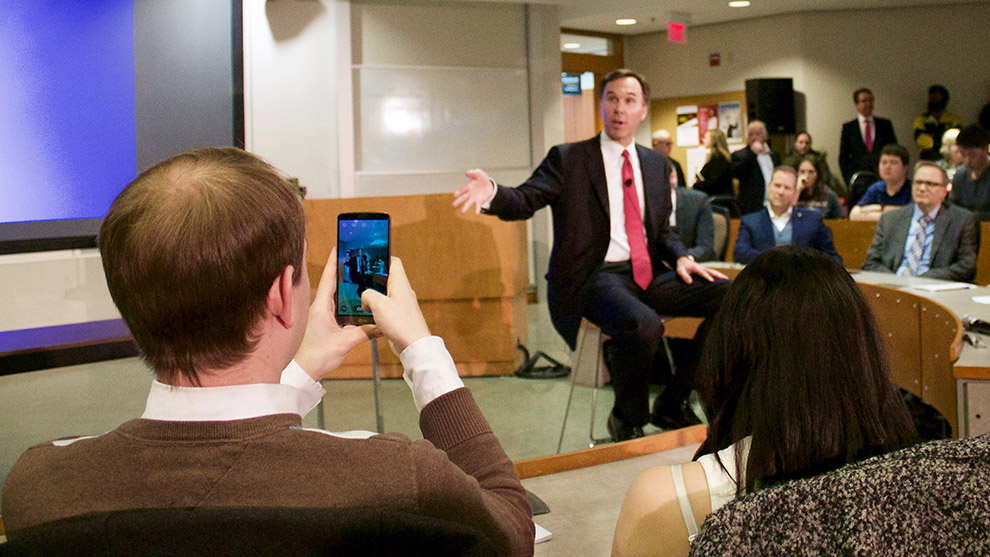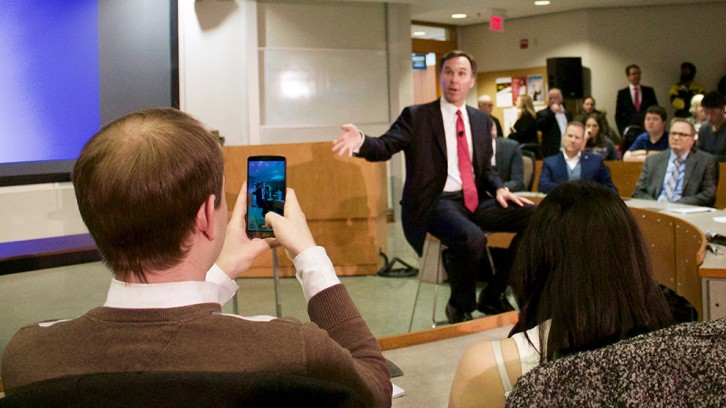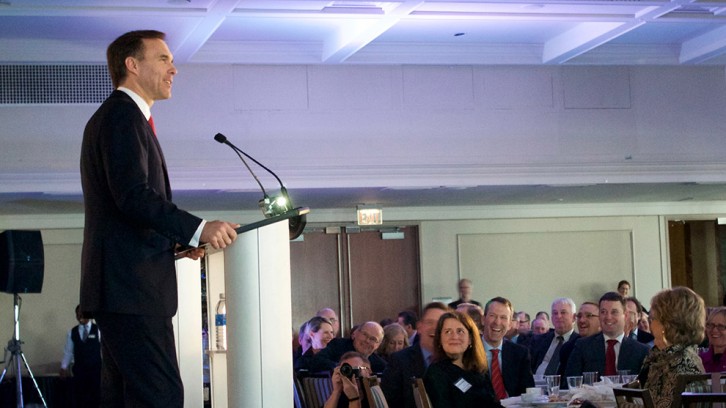Federal budget
Finance minister looking for budget advice
Bill Morneau hopes the public will help write Trudeau’s first budget

caption
Students listen to Finance Minister Bill Morneau during a public pre-budget consultation at Dalhousie University on Jan. 11, 2016
caption
Students listen to Finance Minister Bill Morneau during a public pre-budget consultation at Dalhousie University on Jan. 11, 2016The federal government is looking for help from average Canadians to make the next federal budget.
Finance Minister Bill Morneau was in Halifax Monday, beginning cross country pre-budget consultations. This afternoon, the minister held a live Facebook town hall at Dalhousie University’s School of Management.
About 120 students and residents were in attendance, with another 400 tuning in online.
There, the minister told listeners, “Canadians chose growth over austerity.”
The Liberals campaigned on a platform that extended the timeline for a balanced budget, pledging to increase public infrastructure spending.
According to Morneau, the government will give priority to projects that will economically benefit Canada in both the short and long term.
“With an aging economy we end up with lower labour force participation,” the minister said.
“We need to consider ways to enhance our labour force participation. Using federal funds can make a difference because we can make opportunities for people to actually work,” he added.
The aim of these consultations is to determine the public’s priorities for spending more federal dollars.

caption
Finance Minister Bill Morneau speaks at a lunch event in Halifax, N.S., on Jan. 11, 2016Not everyone sees money the same
But ultimately, the public will only have so much say. With provincial governments, cities and the business community all vying to be heard–priorities are bound to clash.
Halifax Chamber of Commerce chair Robert Batherson acknowledged that Ottawa was dealing with “fiscal pressures of a slow economy,” at a lunch event with minister Morneau earlier Monday.
“But this is not the time for tax increases imposed at any level of government. Nova Scotians disproportionately feel the effects of any tax increases.”
The Liberals ran on a campaign promise to run deficits in order to stimulate the economy, taking on $10 billion in debt this year. But a weak economy could potentially see that number increase.
The minister wouldn’t give a more specific estimate of next year’s deficit, but at the Halifax Chamber of Commerce luncheon Monday he said over the next decade the government looks to nearly double public infrastructure spending to approximately $120 billion. The newly allocated funds will primarily go towards public transportation, green, and social infrastructure projects.
Still the dialogue is welcomed, and there’s optimism a slumping economy won’t cause the government to hold off investing.
Student leader Michaela Sam was at the town hall.
“While we have looked forward to the promises they have made around grants as well as funding for aboriginal student’s education, we’re looking forward to seeing the Liberal party actually follow through and to take greater action on issues like unpaid internships,” said Sam, chairperson of the Nova Scotia chapter of the Canadian Federation of Students.
“However it’s up to the party to ensure that those commitments are made in the upcoming federal budget.”

